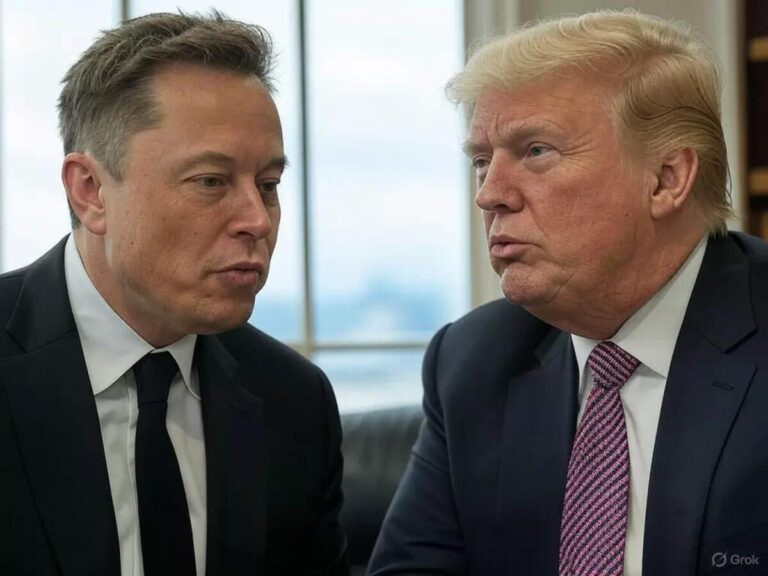Elon Musk and Sam Altman, two of Silicon Valley’s most influential tech entrepreneurs, are known for their groundbreaking innovations and ambitious visions for the future. Yet beyond their technological pursuits, both figures share a growing discontent with the current political landscape. This unexpected commonality highlights a broader trend among tech leaders who are increasingly vocal about their dissatisfaction with political systems, signaling potential shifts in how technology and governance might intersect moving forward.
Elon Musk and Sam Altman Voice Growing Frustration with Political Systems
Both Elon Musk and Sam Altman, titans of innovation and technology, have recently expressed increasing dissatisfaction with contemporary political frameworks. Their critiques highlight a shared frustration with bureaucracy, inefficiency, and what they perceive as a lack of adaptability in government institutions to address rapid technological advancements and global challenges such as climate change and AI regulation. Musk has often vocalized his impatience with regulatory red tape hindering SpaceX and Tesla’s progress, while Altman has underscored the need for political systems to better align with emerging AI governance issues.
Common critiques raised by Musk and Altman include:
- Slow legislative responses to technological innovation
- Insufficient focus on future-oriented policy making
- Fragmented international cooperation on tech ethics and safety
- Underfunding of long-term research and infrastructure
| Aspect | Elon Musk’s View | Sam Altman’s Perspective |
|---|---|---|
| Regulation | Too restrictive & stifling innovation | Needs smarter, anticipatory frameworks |
| Global Cooperation | Often ineffective and patchy | Critical for AI and tech governance |
| Government Role | Should enable faster technological progress | Must balance innovation with ethical oversight |
Impact of Political Dissatisfaction on Tech Industry Innovation
Political dissatisfaction among tech leaders like Elon Musk and Sam Altman is increasingly fueling a climate of innovation characterized by urgency and boldness. This restlessness with existing political frameworks often pushes these figures to bypass traditional channels and explore disruptive technologies at an accelerated pace. Their frustration serves as a catalyst, driving a wave of entrepreneurial initiatives that challenge regulatory norms and prioritize rapid development, particularly in sectors like artificial intelligence, space exploration, and clean energy. Such attitudes are reshaping Silicon Valley’s approach, where innovation is no longer just about market opportunities but also a form of societal commentary and influence.
The consequences of this dissatisfaction extend beyond product development and business models, influencing governance within tech companies themselves. Key impacts include:
- Heightened risk-taking: A willingness to push controversial projects forward despite regulatory and ethical uncertainties.
- Shifts in Investment Focus: Greater allocation of resources toward public interest technologies and sustainable solutions as a reflection of political ideals.
- Reconfiguration of Talent Attraction: Drawing innovators motivated by a shared desire to effect political change through technological means.
These dynamics contribute to a unique innovation ecosystem that straddles the line between technical advancement and political expression, creating complexities for policymakers attempting to regulate this fast-evolving industry.
| Innovation Aspect | Effect of Political Dissatisfaction |
|---|---|
| Product Strategy | Accelerated timelines, controversial features |
| Funding Priorities | Focus on social impact and autonomy |
| Corporate Culture | Emphasis on rebellious, mission-driven teams |
Analyzing the Shared Concerns Behind Musk and Altmans Views on Governance
Both Elon Musk and Sam Altman express a deep-rooted frustration with the current state of political governance, emphasizing how traditional systems appear ill-equipped to handle modern challenges. Their shared concerns revolve around the sluggish pace of legislative response and the overwhelming influence of bureaucracy, which they argue stifles innovation and progress. Musk, often vocal about his impatience with regulatory hurdles, and Altman, with his focus on the ethical direction of AI, converge on the point that political inertia poses risks to societal advancement.
Key themes in their viewpoints include:
- Lack of agility: Governance structures too slow to adapt to rapid technological development.
- Regulatory overreach: Excessive rules that hinder experimentation and risk-taking.
- Transparency issues: A need for clearer accountability in political decision-making.
| Concern | Musk’s View | Altman’s View |
|---|---|---|
| Innovation stifling | Criticizes slow bureaucracy | Advocates faster ethical frameworks |
| Accountability | Calls for transparent regulation | Supports open AI governance |
| Political inertia | Wants decentralized power | Pushes for adaptive policy making |
This shared critique underlines a broader call for reform: a movement toward governance that balances decisiveness with responsibility, enabling breakthroughs while safeguarding public interest. Both figures challenge the status quo, envisioning a political landscape that is not only reactive but also proactively aligned with the pace of technological and societal transformation.
Strategies Recommended by Leaders to Bridge the Gap Between Technology and Politics
Visionary leaders like Elon Musk and Sam Altman emphasize the critical need for transparent communication channels between the tech community and political institutions. They advocate for inclusive forums where policymakers collaborate directly with technologists to anticipate regulatory challenges before technologies reach mass adoption. This approach helps demystify emerging tools like AI and space technologies, reducing misinformation and encouraging informed legislation. Beyond dialogue, they recommend embedding tech advisors within government agencies to ensure innovation remains aligned with public interest.
Additionally, both leaders propose fostering public engagement through educational initiatives that clarify the societal implications of new technologies. Their strategies include:
- Creating bipartisan tech councils to foster consensus on digital policy frameworks.
- Encouraging pilot programs that test tech solutions under governmental oversight before scaling.
- Leveraging data-driven decision-making for transparent and accountable governance.
These steps aim to reduce political friction and empower elected officials with the tools needed to govern effectively in an era of rapid technological change.
| Strategy | Purpose | Expected Outcome |
|---|---|---|
| Transparent Communication Channels | Improve dialogue between tech and politics | Better informed policymaking |
| Bipartisan Tech Councils | Build political consensus on emerging tech | Reduced partisan gridlock |
| Data-Driven Governance | Use evidence to guide decisions | Greater accountability |
| Public Education Initiatives | Demystify technology for society | Increased public trust |
Closing Remarks
In summary, both Elon Musk and Sam Altman exemplify a growing trend among influential tech leaders: a profound dissatisfaction with current political systems. Their critiques underscore broader concerns about governance and the future direction of policy-making in an increasingly complex world. As they continue to shape technology and innovation, their voices also signal a potential shift in how political engagement might evolve within the tech community. Observers and stakeholders alike will be watching closely to see how this shared discontent could translate into tangible action or influence in the political arena.




